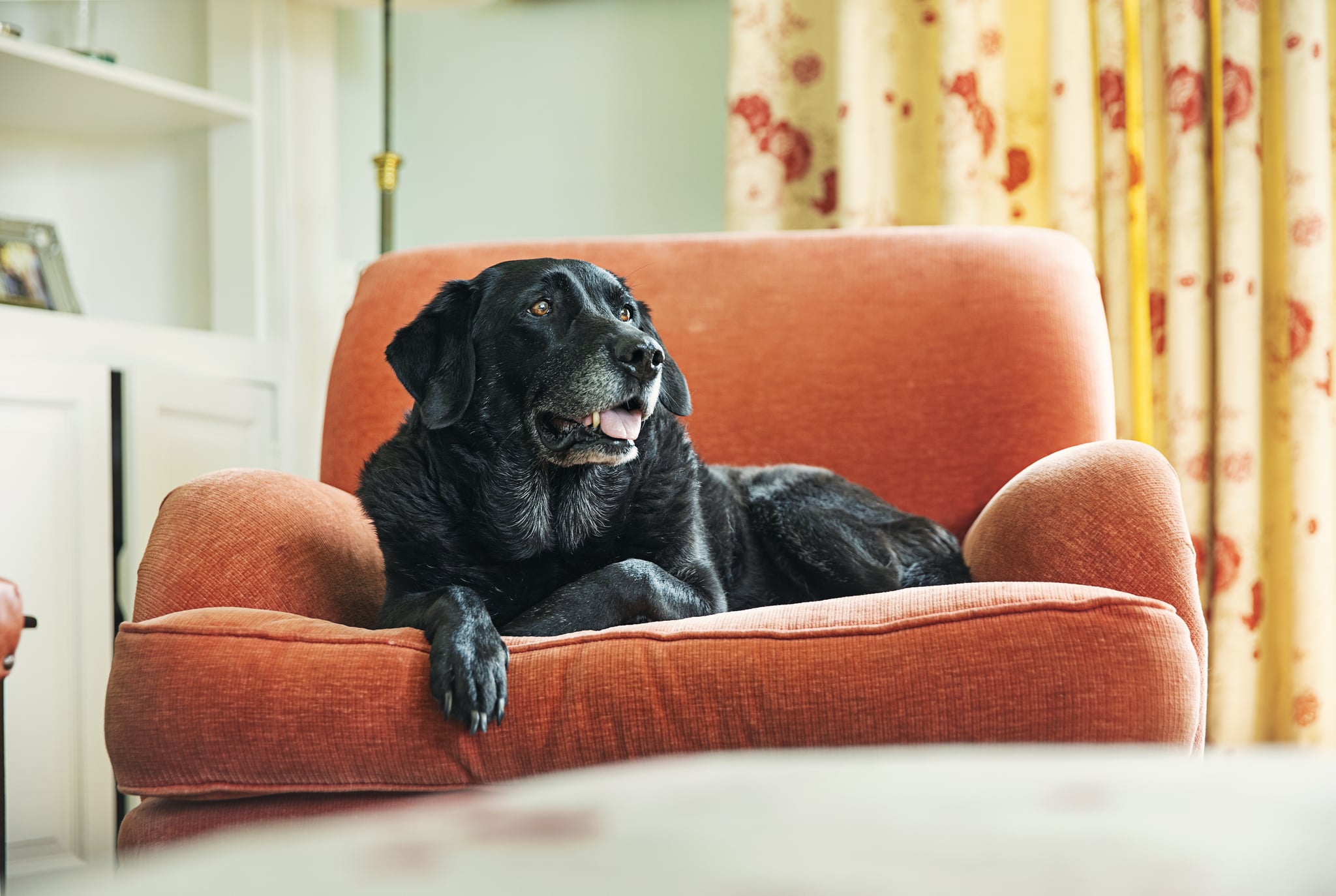
Dogs are man's best friend. More so than cats [1], they aim to please, they mimic human behavior and they love to hang out with their owners [2]. They're so similar to their pet parents that they even age similarly to humans [3], according to a study by researchers at the National Institutes of Health.
"Dogs experience the same biological hallmarks of aging as humans, but do so in a compressed period, around 10 to 15 years on average, versus over 70 years in humans," said Elaine Ostrander, National Institutes of Health distinguished investigator and co-author of the paper, in a release.
So what does aging in dogs and cats look like? And do dogs age faster than their feline counterparts? We asked veterinarians for answers.
What are the Visual Signs of Aging in Dogs?
Dogs show a variety of signs of aging — both physically and mentally. Some of the hallmarks of aging include a graying muzzle, slowing down, increased barking, and cloudy eyes, which could be a sign of nuclear sclerosis (an age-related condition affecting the lens that is fairly insignificant), or a more serious sign of cataract formation, which can affect their ability to see.
Stiffness is also a significant sign of aging in dogs, says Jennifer Freeman, DVM, PetSmart's resident veterinarian and pet care expert. "As your pup starts to grow older, you may see that they appear to be a bit more stiff and may have difficulty getting around, which can be due to pain that they may be experiencing in their joints," she said. "If you notice your dog exhibiting this behavior, it's best to check in with your veterinarian to identify any degenerative diseases or other underlying causes."
Weight fluctuation is also a sign to watch for, she said. As dogs age, "it is more common to see weight gain [5], given they may be less active but may be consuming the same amount of food." However, she warned that pet parents should aim to manage their pet's weight, as excess weight can exacerbate signs of arthritis. Weight loss, on the other hand, should be addressed with your veterinarian in order to determine what may be the underlying cause since conditions such as kidney disease, diabetes, and cancer can occur in our aging pets.
It's important to note that signs of aging can look different in dogs of different sizes, says Michelle Lugones, DVM, a veterinarian at Best Friends Animal Society [6]. Research suggests that larger dogs may age faster or age earlier than small breeds, she says, so they may show signs of age faster.
"In general, small breeds tend to live longer than large breeds. For example, a Chihuahua may live well into their teens, while a Great Dane may live until just seven years old," Dr. Lugones says. "Growth hormone levels and metabolism may play a role as well."
What are the Visual Signs of Aging in Cats?
Dogs do exhibit more signs of aging, so it's more obvious to the human eye. But cats can also show subtle signs of aging, says Dr. Freeman. When cats age, you may see weight fluctuation, similar to what you see in dogs, as well as stiffness — they may have a harder time jumping onto higher surfaces or getting in and out of the litter box, for instance.
Cats also may experience changes in their temperament. "You may come to find that your cat can become a bit more easily agitated as they age," Dr. Freeman says. "Because cats can become more agitated or become more aloof if they're ill or experiencing pain, it's important to visit your veterinarian to rule out any underlying conditions."
Additionally, Dr. Lugones says, there's less variation in the size of most domestic cats, which means there's less of an age range at each feline life stage. "Comparing how fast dogs and cats age isn't straightforward because there are multiple factors at play," she says. "But it appears that overall, small breed dogs and cats may age more similarly compared to large breed dogs."
Does This Mean that Cats Don't Age as Quickly As Dogs?
It mostly just appears that dogs age faster because they exhibit more obvious signs of aging compared to cats. Plus larger breeds of dogs simply don't live as long as cats, or even their smaller dog breed counterparts. "Lifespan and aging are all related to the animal's genetic makeup," says Dr. Freeman. "But lifestyle factors such as proper nutrition, weight management, exercise, and early detection/proper treatment of diseases can help to affect Mother Nature's lifespan calendar for the better."
